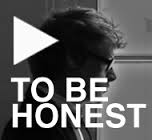IMC Bootcamp Behavioural Ethics
- Measures of (dis-)honesty
Info about event
Time
Location
Aarhus, IMC Meeting room
Organizer

Every last Tuesday in the month, the IMC is organizing a full-day interactive workshop, each featuring an everlasting hot topic in cognitive neuroscience research and specifically, how to approach it methodologically. A group of invited experts present selected choices of research in the morning. In the afternoon all participants are invited to engage in an open discussion exploring adequacy, combinability and challenges of the introduced techniques especially when used within an interactive framework.
This bootcamps topic will be "Behavioral Ethics - Measures of (dis)honesty". Invited Speakers are Shahar Ayal (Interdisciplinary Center (IDC) Herzliya, Israel), Panos Mitkidis (IMC) Guy Hochman (IDC Herzliya) and Ori Weisel (University of Nottingham). Their talks will introduce the field and give an overview over behavioral labstudies, fieldwork and eye-tracking/pupil dilation as measures of (dis-)honesty.
Lunch and coffee will be provided by the IMC.
Please REGISTER HERE.
9:15 Welcome
9:30 Shahar Ayal: Introduction to Behavioral Ethics
Abstract: Cheating, fraud, racketeering, and other forms of dishonesty are among the greatest personal and societal challenges of our time. This talk will present a general introduction to the rapidly growing field of behavioral ethics and its central theoretical concepts. In the first part, I will explain the basic principles of the Justified Dishonesty model and demonstrate several research methods to trace cheating in the lab. Then, I will introduce psychological mechanisms that enable people to rationalize and condone their unethical behavior and discuss possible implications for real life situations. Finally, I will present a 3-principle framework that classifies forces that affect dishonesty into categories and then redirects those forces to encourage moral behavior.
10:45 Panos Mitkidis: Behavioral Ethics in the field
Abstract: Rituals have been suggested to affect people’s prosocial attitudes and moral behavior by enhancing collective effervescence. Some cultures have extreme religious rituals that appear to entail excessive costs in terms of physical pain and effort for those engaging in them, but the equivalent benefits are remain unclear. Unanswered so far stays the question if i) the degree of participation in a ritual and b) the group-association of the person profiting from a potential moral or immoral behavior have any effect on morality. We addressed these issues via a cheating task in a real world setting of an extreme ritual in Mauritius. The results of our experiment showed that the behavior of participants is modulated by the degree of participation in the ritual as well as the identity of the party profiting from a moral or immoral attitude.
12:00 Lunch
12:30 Guy Hochman: Eyetracking in Behavioral Ethics
Abstract: According to Self-Maintenance theory, people notice their dishonest acts, and thus experience ethical dissonance between their misconduct and their positive moral self. In this view, dishonesty is facilitated by justifications that redefine moral boundaries. By contrast, the Bounded Ethicality approach suggests that biased perception prevents people from becoming aware of their dishonesty. We tested the key process assumptions behind these accounts using pupillary responses and fixation data and found physiological evidence for both kinds of mechanisms. In particular, physiological arousal increased at the initial stage of cheating responses. This suggests that people are on some level aware of their wrongdoings. At the same time, however, we found attentional biases that can reduce the likelihood for detecting potentially disadvantageous information. We suggest that dishonest acts come at the internal cost of increased tension, which people aim to avoid by preemptive biased processing as well as post-hoc justifications.
13:45 Ori Weisel: Dishonesty in the presence of others:
Abstract: Dishonest behaviour is affected by the presence and involvement of others. These others can be “partners in crime”, but can also be incidental beneficiaries or victims of dishonest behaviour. I will discuss experimental research showing that collaborative settings can steer people’s cooperative tendencies toward dishonest behaviour; that dishonest behaviour is affected by victim identity (another person vs. a faceless organization); and that the latter result is crucially related to social value orientation, a measure of the degree to which individuals assign value to the welfare of others.
15:00 Discussion and drinks
